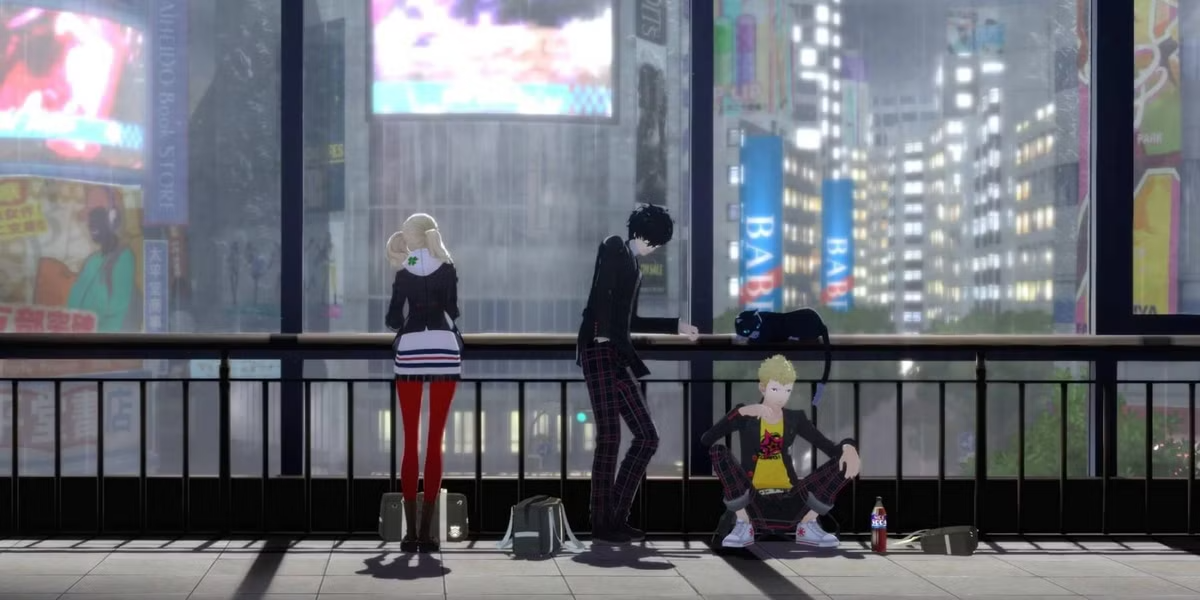How to use central themes to create relatable narratives

The best stories plant seeds that readers get to water long after finishing the last page. But how do master storytellers create that level of impact? I think the secret lies in understanding central themes in storytelling and how they operate. Let's call it the "concentric circles framework."
A central theme is a constraint that drives innovation in your character development, plot progression, and worldbuilding. When in doubt, give them a question to chew on, then drip-feed them the story beats they need to answer it themselves; it's a time-honored framework for writing a great scene.
My favorite authors blow this up to encompass the entire story. Framing the entire narrative around a central question helps you keep your story on track, while also giving readers something beneath the surface to look out for as it progresses. The more media I study, the more I see this playing out not just in the actual narrative, but in character arcs and elements of urban fantasy worldbuilding, too.
How central themes create connection through concentric circles
Marc Dunkelman, author of The Vanishing Neighbor, defines community through three concentric rings:
- Inner-ring: Our closest friends and family, who are at least somewhat invested in our day-to-day lives.
- Middle-ring: People with whom we are familiar but not intimate, such as your favorite barista or a neighbor you see walking their dog every day, but never said hello to.
- Outer-ring: People who may not live near you, but with whom you share a single interest, experience, or identity.
In an interview about his storytelling process for the Persona series, director Katsura Hashino talks about the uniquely Japanese idiom tatte hanjou, nete ichijou — you only need "half a tatami mat to stand, and a full mat to sleep," so be grateful for what you have. It also fit in with what the director himself was going through at the time; feeling the pressure to make his next game a hit while managing a company that was, at the time, financially struggling.
After watching that interview, I saw this crumb of wisdom all over the series, in every character's story arc and in every new conflict.
P5 is a love story to Tokyo in general and the Sangenjaya district specifically, where his office is located. Hashino's team took huge amounts of inspiration not just from locations all over the city, but from individual experiences — having lunch at the top of Carrot Tower, shooting airsoft guns in the mountains, or the general listlessness of being a high schooler on summer vacation.
It was developed to appeal to 12-year-old Japanese boys, not a 30-something Black woman from America. Yet I talk about it constantly. Why?
Because the developers crafted themes that, although deeply personal to them, are internationally relatable — "outer ring-optimized," if you will — and this led to runaway international success. A few messages I got from my playthrough:
- You only get so much time. Use it wisely.
- Good friends are confidants. Support them, and let them support you.
- If you make a mistake, try a new angle but don't give up.
A lot of media out of the US will intentionally force-feed you the message, but books benefit from nuance. Little moments of inspiration start as tiny seeds that readers can water on their own time. The more you water it, the more noticeable the message becomes. After following the characters through relatable experiences and conflicts for such a long time, that bit of wisdom at the end feels earned, and personal.
No one picks up a title and says, I know this is going to change my life; it just happens. But it's not going to happen unless you give them something to cultivate the seed with.
So, how do you know which seeds to plant?
Make your experiences accessible to people who will never live them
Have you ever tried to explain to a neurotypical person what it's like to be autistic, only for them to say something like, "Oh, I feel awkward in groups sometimes, too. I guess everyone's a little bit autistic!"
From a storytelling standpoint, I'd say that's the difference between writing authentic autistic characters and caricatures; you've gotta be prepared to immerse a reader into an experience they've never had, and never will.
For example, as of today I've written 36,000 words of my novel. Many of the main characters are neurodivergent, but I haven't written that word a single time. There's only one character I'd expect a neurotypical reader to suspect as autistic: a disheveled, awkward teenage girl who yearns to blend in and can't be bothered with anything she isn't intensely interested in. Obviously, she's giving standard Sheldon vibes.
But the "hot witch hunter" character? Absolutely not. I guarantee autistic readers are going to clock him as soon as he starts getting some real page time. For everyone else, his social quirks and obsessive tendencies will go right over their heads as his actions progress the story.
Let your experiences play out through your characters for your community to relate to — but also let them feed into the story to keep the general audience engaged!
A central theme prevents you from getting carried away, too
If P5 is my Holy Grail example of good characterization, the opposite of that would be High Guardian Spice, a show with an interesting premise but extremely one-note characters:

When this show was announced, shots of a writing room full of blue-haired white women went viral among some mean-spirited communities online. While I wouldn't wish that on anyone's art baby, I could see where they were coming from. Not only did its marketing focus on the people creating the story instead of the story itself, the characters looked and sounded like the writers, right down to their backstories!
Putting too much of your own desires and experiences into a story or character runs the risk of creating a Mary Sue or an obvious self-serving fantasy that sacrifices your readers' entertainment for your own gratification. Blending your experiences in with that central question, on the other hand — giving your characters relatable limitations — offers them something to chew on, muse over, and investigate for themselves.
That way you're not writing a fantasy with you as the main character; you're simulating a space where the reader can see the world through your eyes without even realizing it.
Sharing personal experiences through universal stories through the concentric circle framework
There are four steps to implement central themes in your storytelling:
- Clarify your core question: What personal experience in a running thread in your story? Mine is about nature vs. nurture: How does community (or lack of it) influence the way we deal with oppression and trauma? (It's okay if you don't have an answer to this question yet. I sure don't!)
- Find the universal thread: What broader human experience does your question connect to?
- Create character constraints: Let your theme create limitations that force innovation.
- Test against concentric circles: Your inner ring (intimate readers) should see themselves reflected; middle ring (familiar readers) should recognize the humanity; and the outer ring (broader audience) will hopefully enjoy the universal themes.
I think a central theme can help guide your choices and keep the narrative clear and simple. To be honest...most people aren't gonna think that deep about it. But your ride-or-dies will. But constraints force you to innovate, and the specificity will create a new level of authenticity that some casual readers can latch onto and fall in love with.
Your experiences matter. Your perspective is valuable. The key is packaging them in themes that create connection rather than separation.
No spam, no sharing to third party. Only you and me.


Member discussion